On Friday (Aug 26), a United States coast guard ship was on a scheduled port call in the Solomon Islands after conducting patrols to monitor illegal fishing activities in the Pacific. However, when it tried to get clearance to refuel and re-provision, stunningly there was no response from the island’s authorities for diplomatic clearance for the vessel to land.
The USCG cutter Oliver Henry had to be diverted to Papua New Guinea instead. Lieutenant Kristin Kam said – “The Government of the Solomon Islands did not respond to the U.S. Government’s request for diplomatic clearance for the vessel to refuel and provision in Honiara. Accordingly, CGC Oliver Henry diverted to Papua New Guinea to refuel and provision.”
Based in Guam, the U.S. patrol vessel was scheduled for a routine logistics port call on Guadalcanal, Solomon Islands. The port denial, however, has raised concerns of Chinese influence on the Pacific island. But the U.S. was not the only country affected. British patrol vessel HMS Spey, which also took part in the same “Operation Island Chief”, was similarly denied entry into the Solomons.
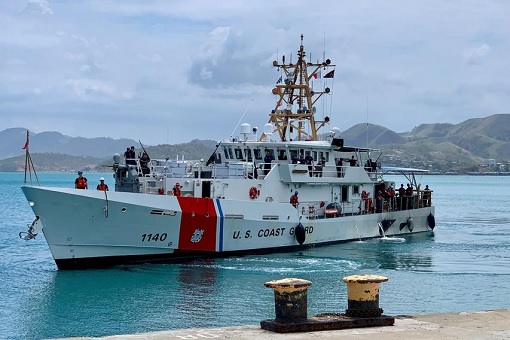
The only reason the government of Solomon Islands deliberately refused to respond to a routine logistics port call for the U.S. is because of deteriorating relations between Washington and the Pacific nation. A brief statement from Washington said the State Department has contacted the Solomons government and expects “all future clearances will be provided to U.S. ships”.
Was the statement from the State Department a warning or a threat to the small island? Coincidentally, on Wednesday (Aug 24), the Solomon Islands government threatened to ban foreign journalists from entering the Pacific nation if they continue to be “disrespectful” or if they engage in “racial profiling” in stories about the country’s ties with China.
Prime Minister Manasseh Sogavare said that foreign journalists must understand that they could not operate in the Pacific the same way they did in other countries. He said – “The Pacific is not the same as Australia or United States. When you chose to come to our Pacific Islands, be respectful, be courteous and accord the appropriate protocols.”
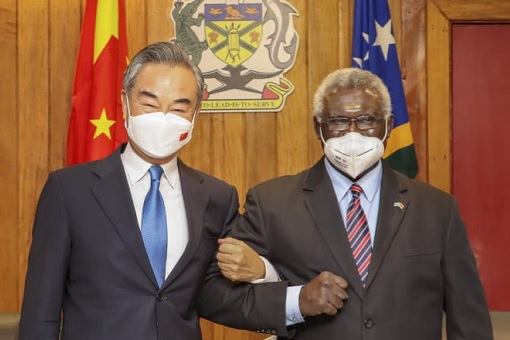
The warning was specifically being targeted at the Australian ABC after its reporting of China’s growing presence in the island. The Solomon Islands was offended by the Aussie’s racial stereotyping, accusing the media of spreading misinformation or fake news after publishing an episode titled “Pacific Capture: How Chinese money is buying the Solomons”.
The Australian Broadcasting Corporation has rejected the accusations, but the office of PM Sogavare slammed the Aussie media of “trying to tell the Solomon Islands people that because the government of Solomon Islands is opening up to partners who are not, in the opinion of ABC, white and does not operate a democratic system it is wrong, unfit and corrupt”.
Lecturing the U.S. and its allies, the Prime Minister Office said – “The constitution of Solomon Islands protects Solomon Islands from racial discrimination and the government of Solomon Islands will ensure that racial practices are eliminated from Solomon Islands”. Of course, everything started over a controversial security deal between China and Solomon Islands.
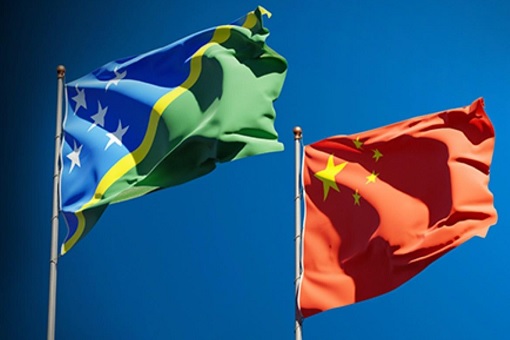
In March, when a draft security agreement between China and Solomon Islands was leaked, it instantly sparked concerns among U.S., Australia and New Zealand about Chinese influence in the region where they have been dominating for decades. The deal would allow the deployment of Chinese “police, armed police, military personnel and other law enforcement and armed forces”.
The agreement also allows China to make ship visits, provide logistical replenishment and have stopovers and transition in the Solomon Islands. After the Pacific island confirmed the new security partnership on March 25, saying it was expanding ties with China to combat security threats and ensure a safe environment for investment, Canberra went berserk.
Upset, then-Australian Prime Minister Scott Morrison said there is great concern across the Pacific family because “we are in constant contact with our Pacific family”. He also argued that Australia is a “leader” in the region, having splashed up to US$1.7 billion in aid contribution to the islands, which has a security agreement with Canberra since 2017.
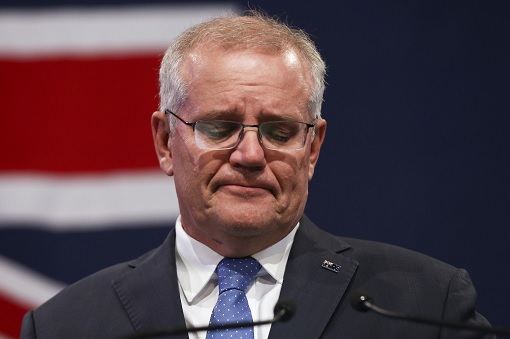
It was believed that Taiwan, along with Australia had deliberately leaked the draft of the security deal to paint China as not only a national security threat, but also a threat to the U.S. military dominance as well as sovereignty danger to every country in the Pacific. It was also done to pressure the Solomon Islands to cancel the deal, which could help Morrison’s re-election.
The next month (April), Scott Morrison again attacked Beijing, accusing the Chinese government of interfering in foreign politics by trying to influence the Australian election. With most polls showing Morrison’s conservative coalition headed for a loss in the May 21 election, he was throwing everything, including the kitchen sink, to project himself as a tough sheriff standing up to China.
Despite Prime Minister Sogavare’s assurance in the parliament that Solomon Islands would not participate in any militarisation in the Pacific, Morrison’s government was not satisfied. Then-Home Affairs Minister Karen Andrews claimed the deal was a form of foreign interference in Australia’s election, regardless of Beijing’s denial and Solomon’s explanation.
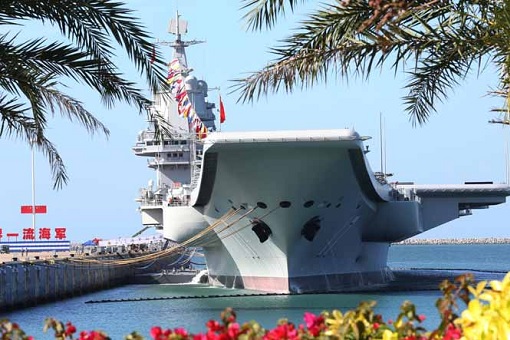
The U.S. too was upset with the presence of Chinese forces in the Solomons. Panicked, Washington said it would reopen an embassy in Honiara (which it closed in 1993), fearing China was seeking to strengthen military relations there. The China-Solomon Islands pact was one of the most significant security developments in decades that could threaten Australia’s national security interests.
The Solomon Islands, a nation of hundreds of islands in the South Pacific has a population of about 700,000 people. But it is just about 2,000 kilometres (1,240 miles) northeast of Australia. Clearly, any presence of Chinese security forces that remotely resembles a military base would spook Australia, and the U.S. for that matter, because China will be in its backyard.
The land Down Under has every reason to be concerned and panicked. The presence of Chinese naval forces in the Pacific island will have a significant impact on the balance of security in the region as it would complicate Australia’s ability to move ships, submarines, and aircraft along its eastern coast. China will be watching Australia from the Solomons.
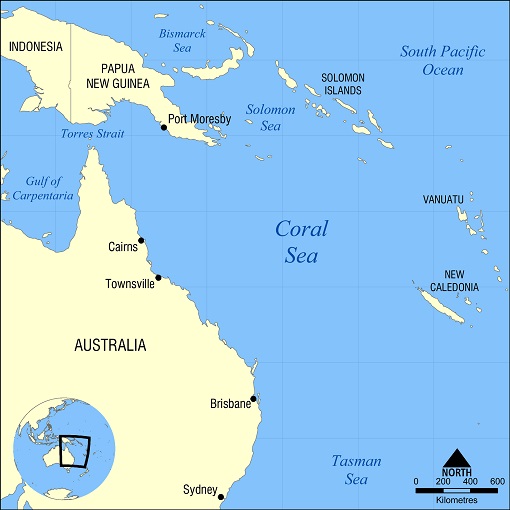
It was already bad that Australia is defenceless against Chinese ballistic missile threat from artificial island bases in the South China Sea, some 3,500 kilometres away. Now, it becomes worse when the Chinese can attack the Aussie from just 2,000 kilometres away. Even if China has no plan to attack, it can now monitor and spy on Australia much easier.
During World War II, Imperial Japan and the U.S. fought for control over these islands as they were critical for maintaining logistical supply lines and projecting military power. Any country that controls the islands would posses the geostrategic value in this region. But it’s not only about Australia or New Zealand, two members of the Five Eyes, a group of five English speaking countries.
The Chinese military presence in the Solomon Islands will enable Beijing to break through the encirclement by U.S. armed forces that are currently present in the region such as in Guam, Japan, and South Korea by positioning the Chinese forces behind them, therefore outflanking the U.S. Now, America has to think twice (constantly watch its back) about an intervention if China decides to invade Taiwan.
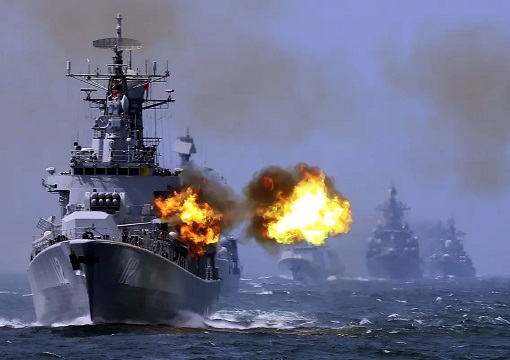
Besides sandwiching the U.S. forces, China may use Solomon Islands as a deployment and a refuelling hub to deny the American forces the ability to project power by threatening their logistical supply lines. Australia has no one to blame but itself. Its reckless decision to get nuclear submarines and establish AUKUS with the U.S. and UK has only forced the Chinese to set up a base in its own backyard.
In what appeared to be a coordinated intimidation and threats, the U.S. has warned Solomon Islands that it will “respond accordingly” if its security agreement with China leads to a Chinese military presence in the Pacific island nation. The warning was personally delivered to Prime Minister Manasseh during a visiting U.S. delegation led by Indo-Pacific security adviser Kurt Campbell.
Even though the 90-minute meeting, which included ambassador Daniel Kritenbrink (U.S. assistant secretary for East Asian and Pacific Affairs), did not elaborate the nature of an American response, the retaliation could be an “unprovoked invasion” on the Solomon Islands to topple its government. Morrison had warned that a Chinese military base in the Solomon Islands would be a “red line”.
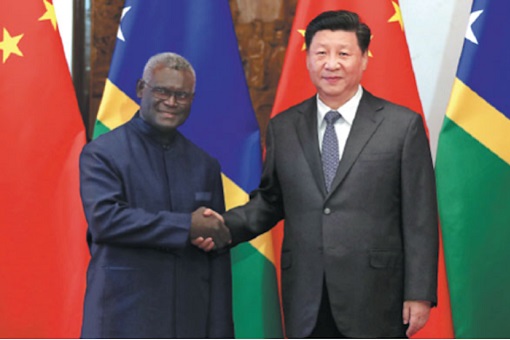
Australia news media has basically trumpeted and supported the view of David Llewellyn-Smith, founding publisher of MacroBusiness and former owner of leading Asia Pacific foreign affairs journal “The Diplomat”, that Australia must be willing to invade the island – if that’s what it takes to stop the proposed security pact between China and the Pacific island.
Unimpressed with Washington’s threat and Canberra’s warning of an invasion, Solomon government has criticised the Western’s hypocrisy and double standard. In his response over the issue of lack of transparency, PM Manasseh slammed Australia over its AUKUS security deal with the United States and Britain, saying he only learned of the agreement through media reports.
If indeed Australia must be consulted in the name of transparency, then the Pacific too “should have been consulted to ensure the AUKUS treaty is transparent, since it will affect the Pacific family by allowing nuclear submarines in Pacific waters”, argued PM Manasseh. Even Senior Labour MP Tanya Plibersek admitted that Solomon Islands’ security pact happened due to “years of neglect” by Australia.
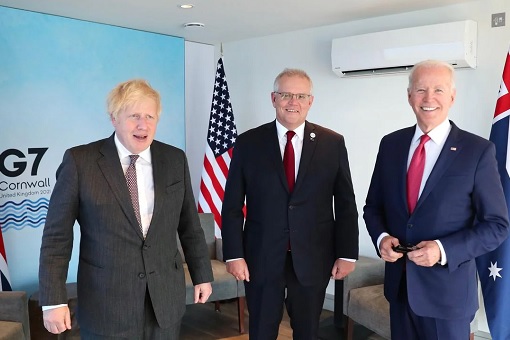
More importantly, the U.S.’ warning and Australia’s threat of an invasion demonstrate the behaviour of an aggressor or a bully, the same way Joe Biden described Vladimir Putin. If Russia’s invasion of Ukraine is being called an unprovoked and unjustified attack, Australia’s threat to topple the Solomon government through invasion is also an unprovoked attack.
After the arrogant Morrison lost his election, new Foreign Minister Penny Wong travelled to Solomon Islands to repair the relationship. It was too little too late. When U.S. Deputy Secretary of State Wendy Sherman and U.S. Ambassador to Australia Caroline Kennedy traveled to the Solomons earlier this month to commemorate the 80th anniversary of the start of the Battle of Guadalcanal, PM Manasseh Sogavare did not show up – even though he was slated to speak.
Other Articles That May Interest You …
- The U.S. And Australia Threaten To Invade Solomon Islands – Now Who’s The Bully And Aggressor?
- China-Solomon Islands Security Deal – Australia Extremely Panicked Over A New Chinese Military Base In Its Backyard
- Australia’s Poseidon Spies On China Warships, But Quickly Complains When The Chinese Navy Retaliated With A Laser
- U.S. Stunned & Upset – China Fired “Mach 5” Hypersonic Missile That Can Bypass Radar Shields And Hit The U.S.
- China Unveils Military Drone That Can Fly For Almost 24 Hours & Other Military Tech Including Moon Rocket
- Australia’s Beef Export Worth A$3 Billion To China May Not Recover – Permanently & Completely
- Economic Destabilization – How China Prepares For American & Japanese Military Interference In Taiwan Conflict
- Warning To The U.S. – China Fires Nuclear-Capable “Aircraft-Carrier Killer” Ballistic Missiles In South China Sea
- China Navy Force Expansion – Warships Dock In Cambodia, Triggering Fears Of A New Naval Base
- Vanuatu Military Base – Australia Panic As China Secretly Militarizing Its Backyard
- Chinese Flag Raised At Sri Lanka Port Raises Concern Of China Secret Naval Base

|
|
August 27th, 2022 by financetwitter
|


|

|

|

|

|

|




























Comments
Add your comment now.
Leave a Reply